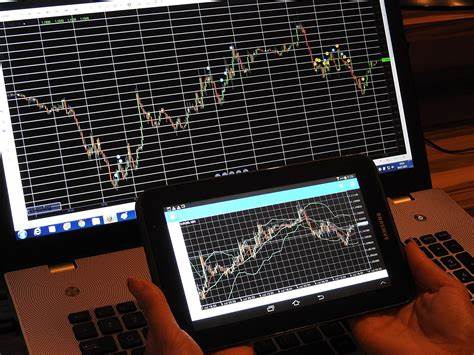Mastering advanced strategies in global markets is crucial for Australian investors engaged in CFD trading, aiming to maximize their profits in a rapidly evolving financial landscape. Navigating these waters requires not only traversing the complexities but also capitalizing on them by employing tactics and insights that leverage market volatility. This journey demands an understanding of financial instruments, market trends, and a methodical approach to investing, particularly for those managing diverse portfolios that include stocks and real estate.
Developing an acute sense of timing is fundamental to succeeding in international markets. In investing, timing refers to knowing when to enter or exit a position and understanding market cycles. For instance, this might involve buying stocks at a low price and selling them at a high price in the realm of stock trading. The same principle applies to real estate investments, where the timing of buying and selling can significantly impact returns.
Another pivotal strategy is diversification. Australian investors should look beyond their domestic markets. Exploring foreign bonds, equities, and alternative investments can help spread risk and increase potential returns. Achieving diversification also means varying the types of investments made, including long-term holdings, short-term trades, and leverage across different sectors and regions.
An additional beneficial strategy involves understanding and utilizing financial derivatives. Derivatives, such as options and futures, can be used to speculate on future market movements or as hedges against risk. However, these instruments require a high level of understanding and risk management. While they can be volatile and complex, they can serve as powerful tools in an investor’s arsenal when used correctly.
Leverage is another potent tool, though it comes with significant risk. Using borrowed funds to amplify the potential return on investment can lead to substantial gains, but it can also magnify losses. Leveraged investors must have a well-defined risk management strategy and understand how market fluctuations can impact their positions.
Australian CFD traders should also monitor market indicators and global economic trends. Staying informed about international events, economic policies, and market sentiment is crucial. This involves regularly following financial news, understanding economic reports, and being aware of shifts in global policy. These factors can significantly influence international markets and, consequently, investment outcomes.
Technological advancements have transformed how Australian investors access and engage with global markets. Online platforms, CFD trading tools, and analytical software provide real-time data and insights that facilitate better decision-making. While technology can offer valuable information, it should not replace thorough research and a carefully considered investment strategy.
Moreover, effective management of a depreciation schedule is vital, particularly for real estate investors. This schedule is one of the most critical tools for maximizing the tax benefits of real estate investments. It allows investors to deduct expenses from their taxes by detailing how the property and its assets depreciate over time.
Proficiently managing a depreciation schedule can significantly enhance the profitability of real estate investments. Making informed investment decisions requires understanding not only the current value of the property but also its future depreciation. For Australian investors, especially those balancing both stock and real estate portfolios, effective depreciation schedule management can yield substantial financial benefits.
In the broader context of global markets, the ability to anticipate and respond to market movements is paramount. Investors must develop a keen eye for recognizing patterns and trends that signal potential opportunities or risks. This involves continuous learning and adapting to new market conditions, as well as employing both fundamental and technical analysis to inform trading decisions.
In conclusion, mastering advanced strategies in global markets is crucial for Australian investors involved in CFD trading. By developing a keen sense of timing, diversifying investments, understanding financial derivatives, leveraging technology, and managing risks effectively, investors can navigate the complexities of international markets and maximize their profits. Additionally, managing a depreciation schedule for real estate investments and staying informed about global economic trends are essential components of a successful investment strategy. Through continuous learning and adaptation, Australian investors can position themselves for success in the ever-evolving global financial landscape.









